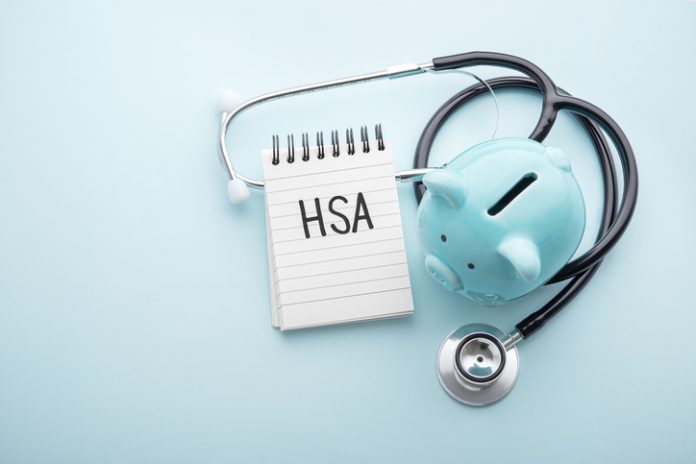Lower-income Americans who get a cost-sharing reduction (CSR) from their Obamacare health insurance could soon set aside part of that money to spend on health care as they choose.
The ACCESS Act, H.R. 5608, introduced by Reps. Greg Steube (R-FL) and Kat Cammack (R-FL), would allow individuals and families to put some of their CSR subsidy into a tax-free health savings account (HSA) that they would own and control. CSR lowers the amount patients pay for deductibles, copayments, and coinsurance under health insurance policies sold in the Affordable Care Act (ACA) marketplace.
“The ACCESS Act is a needed relief for millions of lower-income families who are stuck in costly, one-size-fits-all ACA plans and could use more options to pick from,” said Dean Clancy, a senior health policy fellow at Americans for Prosperity (AFP), a lobby group, in a news release.
“Being able to select a pre-funded health savings account would empower Americans with new choices that will allow them to upgrade from substandard government health care to more personalized solutions that better meet their needs,” said Clancy. “We applaud Congressman Steube and Congresswoman Cammack for sponsoring this innovative legislation that funds people and families—not the system. We urge Congress to pass the ACCESS Act as soon as possible.”
‘Access, Choice, and Control’
AFP says the HSA option would be open to about five million Americans who are enrolled in subsidized Obamacare plans. Policyholders could use the accounts to purchase medical items and services not covered by their insurance.
In addition, the bill would set aside funds for the HSA accounts, something which Congress has failed to do for the CSR program. The Congressional Budget Office estimates the provision will ultimately save taxpayers $29 billion over the next 10 years.
HSAs have proven to be a powerful financial tool to millions of Americans but are limited to about 10 to 20 percent of the population. “These less-advantaged Americans will enjoy the same kind of access, choice, and control that affluent families have always enjoyed,” states AFP.
AFP Ad Blitz
AFP has launched a six-month digital ad campaign in support of the ACCESS Act targeting the Washington, D.C., metropolitan area and dozens of key congressional districts.
“We’re off to a strong start,” said Lauren Stewart, AFP’s senior federal affairs liaison. “Our ads have already reached millions of people and increased awareness on Capitol Hill, and we’re just getting started. We’ve had incredibly productive conversations with members of Congress and going forward we expect to see more and more congressional support for the ACCESS Act. And we know the bill is popular, with our latest poll showing that 82 percent of Americans support it.”
Feedback on the bill has been positive and bipartisan, says Stewart.
“Lawmakers love that the bill saves taxpayers billions of dollars and increases access to affordable health care for low-income Americans,” said Stewart. “Democrats, who have historically been lukewarm on HSA expansion … are seemingly open to exploring the idea of de-coupling HSA eligibility from high-deductible health plans. Republicans support expanding HSAs for several reasons: more competition, empowering customers to shop for care, increasing choices, and lower costs.”
Winning Issue for Candidates
Stewart says Americans continue to feel the weight of health care costs, making it an issue of concern to legislators.
“Our grassroots teams continuously tell us that health care is a top three issue for voters they speak with,” said Stewart. “The ACCESS Act is a solution for lawmakers and candidates who want to help lower-income Americans get the affordable care they need in a more fiscally responsible way for taxpayers. And with President Biden’s inflationary ACA subsidies set to expire next year, the bill represents a sensible alternative to continuing to funnel billions in taxpayer dollars to insurance companies.”
Congressional interest in expanding HSA access goes beyond the ACCESS Act, says Stewart.
“We’ve seen bipartisan support on HSA expansion in the House, so there’s momentum,” said Stewart. “A good example is the bipartisan HSA Improvement Act, led by Rep. Lloyd Smucker (R-PA) and Rep. Earl Blumenauer (D-OR), which the House Ways & Means Committee approved. We definitely expect the ACCESS Act to have similar bipartisan support.”
Veterans’ Accounts, Too
Another HSA bill that has garnered support is the Veterans HSA Access Act, introduced by Rep. Mike Carey (R-OH), says Daniel Perrin, founder of the HSA Coalition, a nonprofit advocacy group.
“Congressman Mike Carey has drafted a bill that will be on its way through the Ways and Means Committee to correct a grossly unfair situation for our veterans, some of whom are disabled,” said Perrin. “Rep. Carey’s bill will bring our veterans one step closer to having tax-free funds to spend on their health care from their Health Savings Account, which veterans under the care of the VA will no longer be prohibited from having after Rep. Carey’s bill provisions are signed into law.”
Carey’s bill would allow non-service-connected disabled veterans to contribute to their HSAs after they receive VA health services, without interruption, says Perrin. “Current law requires nonservice-connected disabled veterans to wait three months before they’re able to contribute to their HSA.”
Perrin says House floor votes on the Bipartisan Improvement Act and the HSA Modernization Act could occur as early as April.
AnneMarie Schieber (amschieber@icloud.com) is the managing editor of Health Care News.




















